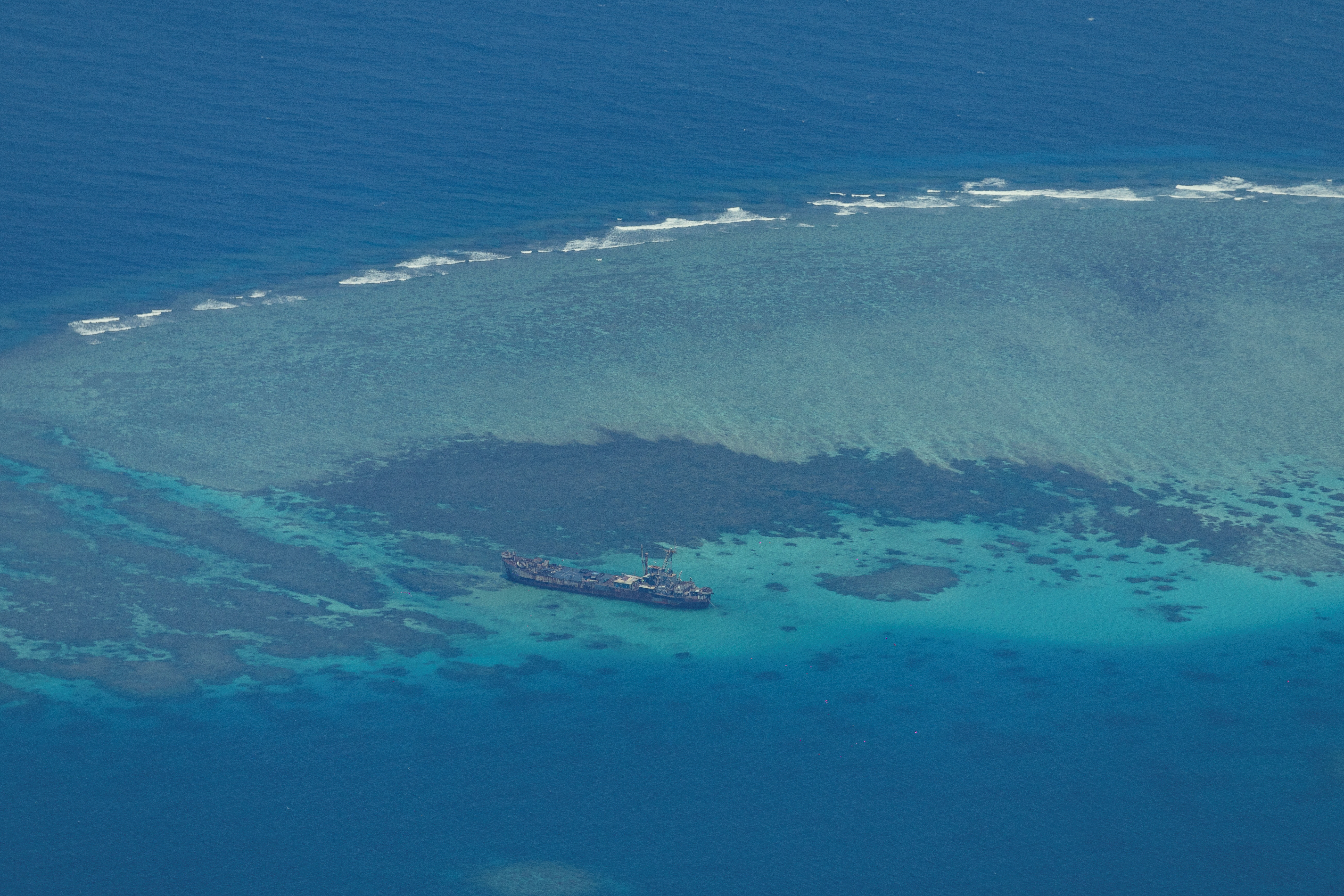Reply To:
Name - Reply Comment
 (Reuters) - The Philippines on Monday described the actions of Chinese vessels against its boats carrying out South China Sea resupply missions over the weekend as a "serious escalation".
(Reuters) - The Philippines on Monday described the actions of Chinese vessels against its boats carrying out South China Sea resupply missions over the weekend as a "serious escalation".
In the latest in a series of confrontations, Manila accused Chinese coast guard and maritime militia vessels of repeatedly firing water cannon at its resupply boats and deliberately ramming another near the Second Thomas Shoal.
In recent years , Manila and Beijing have been embroiled in confrontations at the Second Thomas Shoal as China has become more assertive in pressing its maritime claims, alarming rival claimants and other states operating in the South China Sea, including the United States.
China claims sovereignty over nearly the entire South China Sea, pointing to a line on its maps that cuts into the exclusive economic zones (EEZ) of Vietnam, the Philippines, Malaysia, Brunei and Indonesia. Taiwan, which China also claims as part of its territory, has said it does not accept Beijing's maps.
While this was not the first time that China's coastguard vessels had fired water cannon at Philippine boats, the latest incident caused serious engine damage to one of the resupply vessels that it had to be towed back to the port preventing it from completing it mission.
The Philippines military chief was onboard another boat which was also fired on by water cannoned and rammed while transporting food and water for Filipino soldiers living aboard the aging navy ship, BRP Sierra Madre.
Sierre Madre was deliberately grounded by the Manila on the Second Thomas Shoal in 1999 to assert its sovereign rights over the atoll, that lies within the Philippines' EEZ.
Philippine Chief of Staff of the Armed Forces, General Romeo Brawner, told a radio interview he was unhurt and that he does not believe China knew he was on the boat. But Manila has summoned Beijing's ambassador and filed diplomatic protests over what it called China's "aggressive" actions that were a "threat to peace, good order and security".
China's foreign ministry said on Monday it has lodged solemn representations and a strong protest with the Philippine side over the collision it blamed on Manila, which has accused Beijing of spreading false narratives.
WHY IS THIS SIGNIFICANT FOR BOTH SIDES?
China's repeated attempts to blockade the Second Thomas Shoal, located less than 200 nautical miles from Philipines' province of Palawan, has made the submerged reef a flashpoint for conflict between Manila and Beijing.
Philippine officials and security experts fear Beijing is plotting to take over the shoal and militarise it as it did with Mischief Reef, which lies just 25 miles from the shoal.
"The shoal is a good site for a military base and China has the money to turn it into one," said Jonathan Malaya, a senior official at the Philippines' National Security Council. "That's why they wanted it."
China, which has deployed vessels to patrol there, has repeatedly called on the Philippines to tow away the ship based on what it says was a "promise" made by Manila, but Philippine President Ferdinand Marcos Jr denied such a pact existed. If there ever were such a deal, he was rescinding it, he said.
Jay Batongbacal, a Manila-based expert on maritime law, has said Second Thomas Shoal is not only close to the Philippines, but is also close to the sea lines of communication passing through the Palawan passage, making it an ideal extension of Mischief Reef.
WHAT ARE THE RISKS IF THE TREND CONTINUES?
The latest confrontations are likely to further strain relations between the Philippines and Beijing, which have grown tense under Marcos. He has increasingly accused China of aggressive behaviour, while he has sought closer ties with the United States.
But Justin Baquisal, National Security Analyst at FACTS Asia, thinks that would not affect the overall shape of high-level China-Philippines relations, since "a lot of the tit-for-tat on the South China Sea issue only happens at the ground-level."
Philippine officials have also said that disputes in the South China Sea were not the sum of the country's relationship with China, which is among the Philippines' top trading partners.
Marcos has also kept the conversations with his Chinese counterpart going, and at the sidelines of an economic summit in San Francisco last month he and President Xi met to formulate ways forward in the South China Sea.